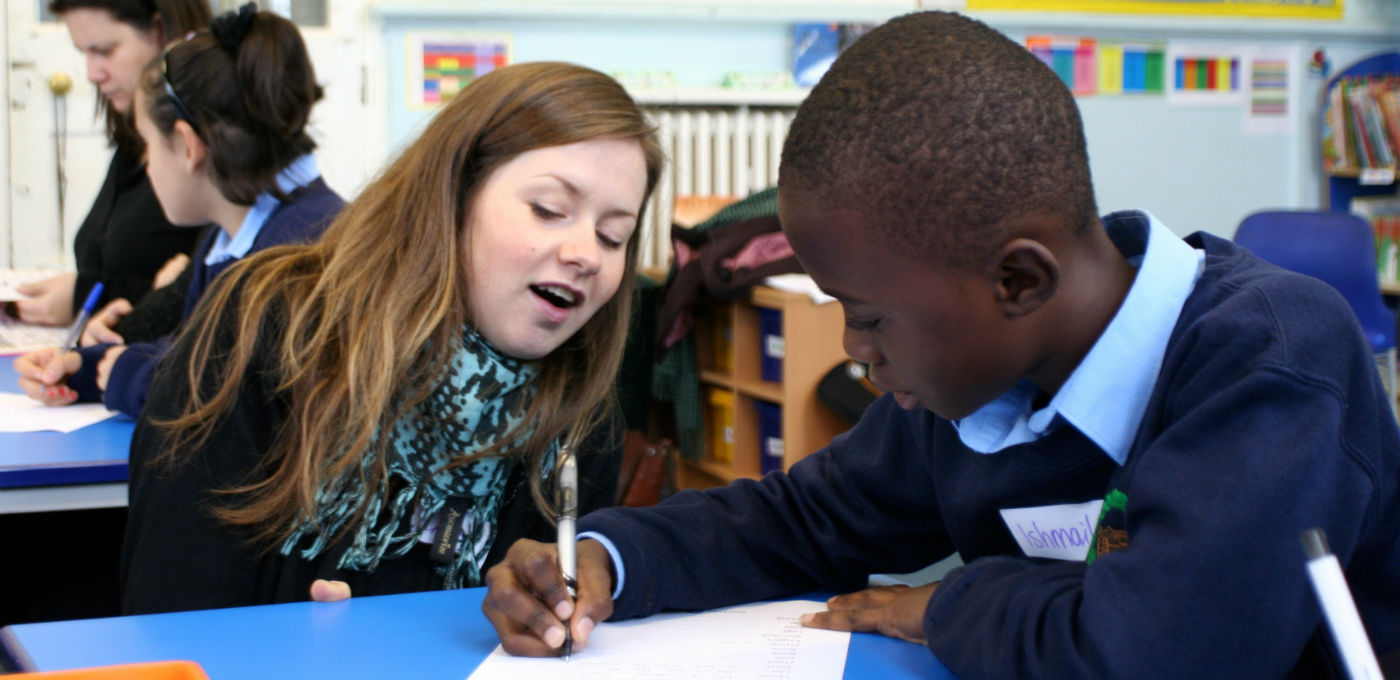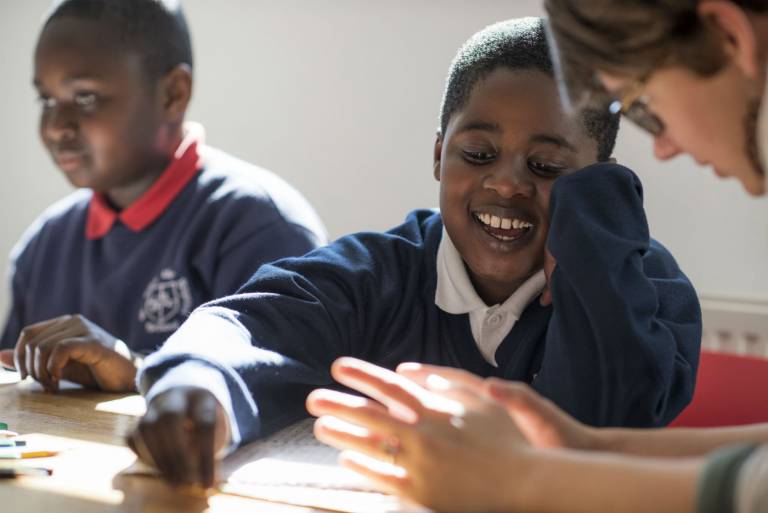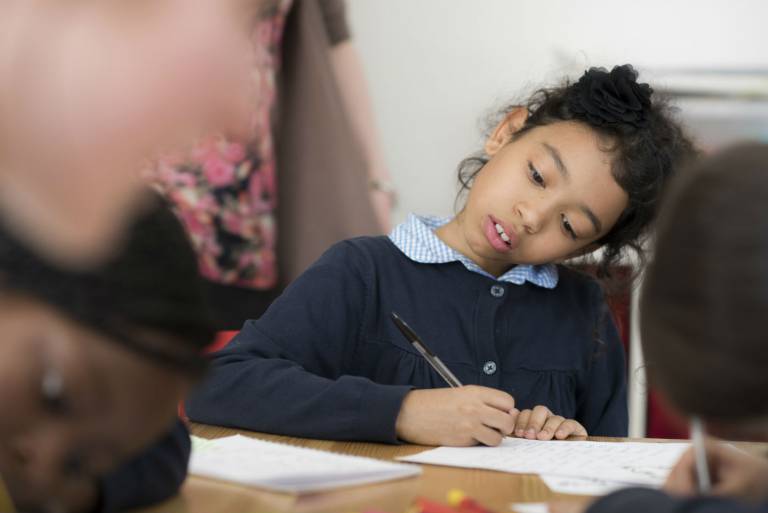Creativity in writing: can we measure what we value?
An IOE evaluation of a writing project has devised ways to assess the development of children's creativity.

19 June 2017
By Diane Hofkins.
Creativity is prized in the workplace and wider society. Yet, many teachers and academics are concerned that it fails to feature strongly in primary education because of the demand for ever-improving, measurable results. But what if creativity, too, could be measured?
In 2012 a team from IOE was engaged to carry out a three-year longitudinal research evaluation of the Ministry of Stories (MoS) project in Hoxton, East London. Set up by author Nick Hornby, with Lucy MacNab and Ben Payne, MoS focuses on creative writing for children from disadvantaged areas. It aims to boost creativity, motivation and writing development, and offers after-school sessions that children choose to attend and bespoke projects in schools.
According to their website, The Ministry of Stories seeks to bring out the fun in writing.
“We believe the best way for children to gather skills and realise their potential is by discovering the joy and craft of stories, and developing their imaginations. Writing enhances self-respect, improves communication – and can transform live
The IOE team, led by Professor Dominic Wyse and Professor Andrew Burn, concluded that Ministry of Stories is making an extremely important contribution to the creativity of the young people it is working with.
They made a transition from heavy reliance on familiar sources, such as books, games and films, towards greater confidence to use own ideas, and more creative use of sources.
As one boy told the researchers: "…I feel like before I came I wasn't that like creative, like to create fictional stories, but now I feel different, I really like to create them because you can just make up anything about the character, you can write anything about it, it doesn’t have to be real, as long as you make it feel to the reader as it is real."

In order to make their judgments about creativity, the researchers needed to developed a new research instrument. Drawing on previous research the instrument adopted three criteria for creativity:
- Originality
- Value
- Imaginative adaptation
Russell Jones and Wyse's definition of creativity as "a person's ability to create something that is regarded by appropriately qualified people as new [/original] and of value" is related to the criteria. In the classroom, Jones and Wyse argues, teachers are the ones who are qualified to make these judgments, through their knowledge of child development and their knowledge about each individual child.
The tool was used by IOE researchers and MoS workshop leaders to discuss and agree the level of creativity demonstrated in writing samples created by each of the 15 children who had been selected at random for case studies. This process of consensual assessment was carried four times for each young person over the course of the three years of the research. Agreements were reached on the strength of originality, value and imaginative adaptation for each young person and their samples of writing.
The evaluation also compared attainment in reading and writing between the case study young people and matched groups of young people not involved in the MoS. The trends for writing and reading were positive although statistically significant for only one group. The nature of the work of an organisation like MoS, compared to schools, made the analysis of attainment particularly challenging.
Interviews with young people revealed that they felt increasingly constrained by the school writing environment and its focus on outcomes. They spoke about why they valued the MoS approach compared with approaches at school, where they felt forced to write.

“In school we do like we are supposed to do like two and a half pages, but in the Ministry of Stories you can do how many pages you want, and they don't force you to, and in school they do really force you.
The MoS was consistently perceived by young people as positive contribution to their lives. As one of the young people said when asked about the differences between MoS writing and school writing: "Well [at MoS] you are free, you can write what you want, unless it's, you know, about the topic. But no one is telling oh no you can’t do this, you can't do that … They don’t tell you what to do, they just let you do what you want to do and help you."
 Close
Close

